Russia says ready to act as ‘intermediary’ in Belarus migrant crisis
The Kremlin says Moscow is ready to act as an “intermediary” in the migrant crisis between its close ally Belarus and the European Union member Poland on their border.
Dmitry Peskov, the Kremlin’s spokesman, made the remark on Monday when asked how Russia saw itself contributing in the resolution of the growing migrant crisis, saying Moscow will act “exclusively as a negotiating intermediary, which is partly (already) happening.”
Belarus has been accused by the EU of triggering the crisis on its border by flying in thousands of asylum-seekers and pushing them to try to cross into Poland, an accusation Minsk has adamantly dismissed. Brussels is also gearing up to levy a new round of sanctions on Minsk.
Poland has closed its border with Belarus as the migrants are stranded in freezing temperatures on the border. It has also deployed hundreds of troops to the frontier, put up a fence topped with barbed wire, and approved the construction of a wall.
Ukraine, meanwhile, has announced drills and the deployment of 8,500 additional troops and police officers to the country's long northern border with Belarus.
President Vladimir Putin of Russia said a day earlier that his country was fully prepared to help resolve the migrant crisis if necessary. “We are ready to help it by all means if, of course, anything would depend on us,” Putin said on Sunday, according to RIA news agency.
Putin denies accusations that Moscow has helped Belarus orchestrate the crisis on the border, where some 4,000 desperate migrants are stranded.
"US State Department's statement on Belarus wrong"
On a conference call with reporters on Monday, Peskov also dismissed as “wrong” a statement by the US State Department that Belarus's actions on the border with the EU aimed to divert attention from the Russian military activities close to Ukraine.
“We consider that statement [by US State Department] as wrong. That kind of representation of the migrants' crisis on the Belarus-Poland border is wrong. I want to remind you of the recent remark by President Putin – his interview was broadcast on Saturday (November 13). He was univocal and eliminated any (Russia's) involvement in the situation with migrants on the Belarus-Poland border.”
"It is not Lukashenko who builds up this situation on the border. (Those migrants) arrive due to visa-free travel, something the President spoke about. Those migrants arrive because they want to get asylum in Europe. They are not allowed to enter but those people know that in the case of other countries migrants were allowed to enter, warmly welcoming," Kremlin spokesman said.
Ukraine has claimed there are nearly 100,000 Russian soldiers near its border; and the United States has issued warnings over a possible attack by Russia. Moscow categorically rejects the possibility of any attack and says Washington is involved in aggressive moves in the Black Sea, where Ukraine and the United States held military drills at the weekend.
NATO warns Russia over Ukraine military buildup
Separately on Monday, NATO Secretary-General Jens Stoltenberg warned Russia that the US-led military alliance was standing by Kiev amid what he claimed to be a “large and unusual” deployment of Russian troops on Ukraine's borders.
“In recent weeks we have seen large and unusual concentrations of Russian forces close to Ukraine's borders, similar to Russia's buildup in Crimea and the Black Sea region earlier this year,” Stoltenberg said. “NATO remains vigilant, we are monitoring the situation very closely, and we continue to consult among allies and partners such as Ukraine and the European Union.”
Stressing that the important thing now was to prevent situations from spiraling out of control, Stoltenberg urged Russia to be transparent about military activities and work to prevent an escalation. “We call on Russia to be transparent about its military activities; it is important to prevent escalation and reduce tensions. NATO stands with Ukraine.”
President Putin and other top Russian officials have already warned the expansion of NATO activities near Russia’s borders is a "red line" for Moscow. NATO has expressed determination to reinforce the security of member states close to Russia following what it claims to be Moscow's “annexation” of Crimea and its backing for pro-Russia separatists in eastern Ukraine.
Relations between Moscow and Kiev have been strained since conflict erupted in Ukraine's eastern region of Donbass between Ukrainian government forces and ethnic Russians in 2014. The US, the European Union, and Ukraine claim that Russia has a hand in the conflict. Moscow strongly rejects the allegation. The Black Sea peninsula of Crimea voted in a referendum to fall under Russian sovereignty that year and more than 90 percent of the participants in the plebiscite voted in favor of unification.
Baltic states claim Belarus must be held accountable for "human trafficking"
In another development on Monday, some Baltic states accused Belarus of forcing migrants to breach the EU border and claimed that the government of President Alexander Lukashenko must be held accountable for human trafficking.
“We ... condemn the actions taken by the Lukashenko regime instrumentalizing migrants for political purposes,” the presidents of the three Baltic states of Lithuania, Latvia and Estonia said in a joint statement after meeting with Polish President Andrzej Duda via video link.
“Thousands of migrants are being directed by Belarus officials to storm the EU's external border,” Lithuania's President Gitanas Nauseda told a news conference.
Estonian President Alar Karis, Latvian President Egils Levits and the Lithuanian president called on the European Commission to introduce “without delay” changes in EU laws to tighten asylum possibilities. They also said the EU should pay for the construction of barriers at the bloc's external border, such as the one with Belarus.
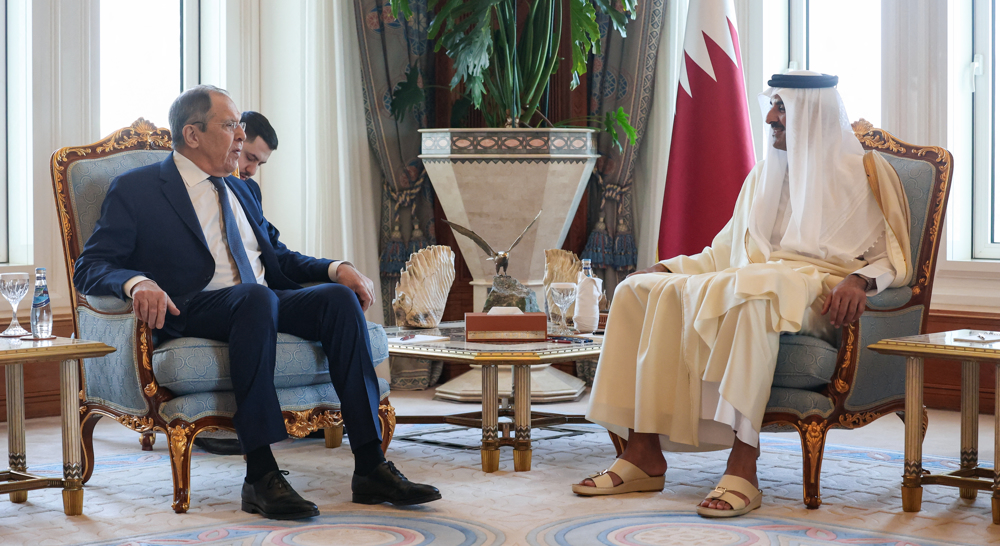
Russia, US diplomats to meet in Istanbul to discuss restoration of embassies: Lavrov
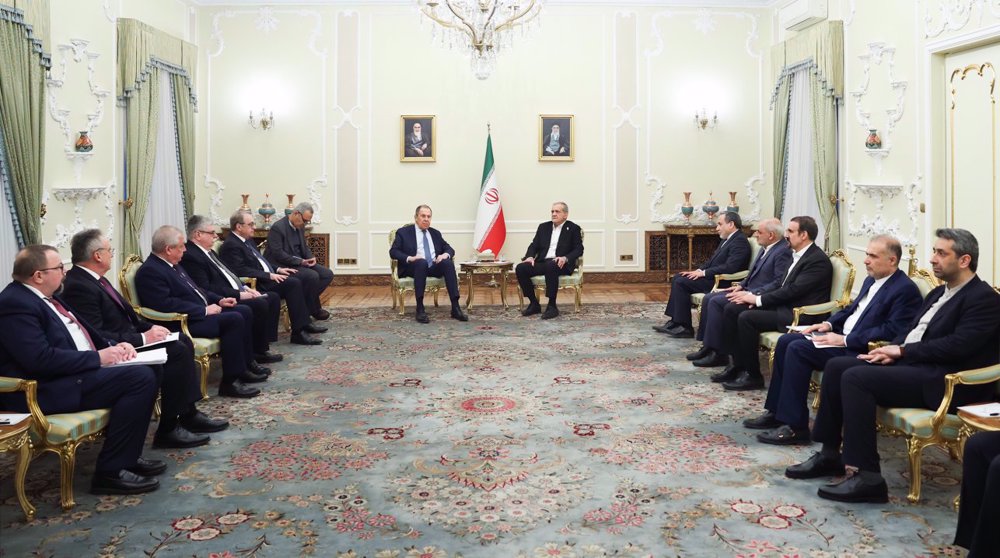
Iran’s president vows to accelerate cooperation with Russia
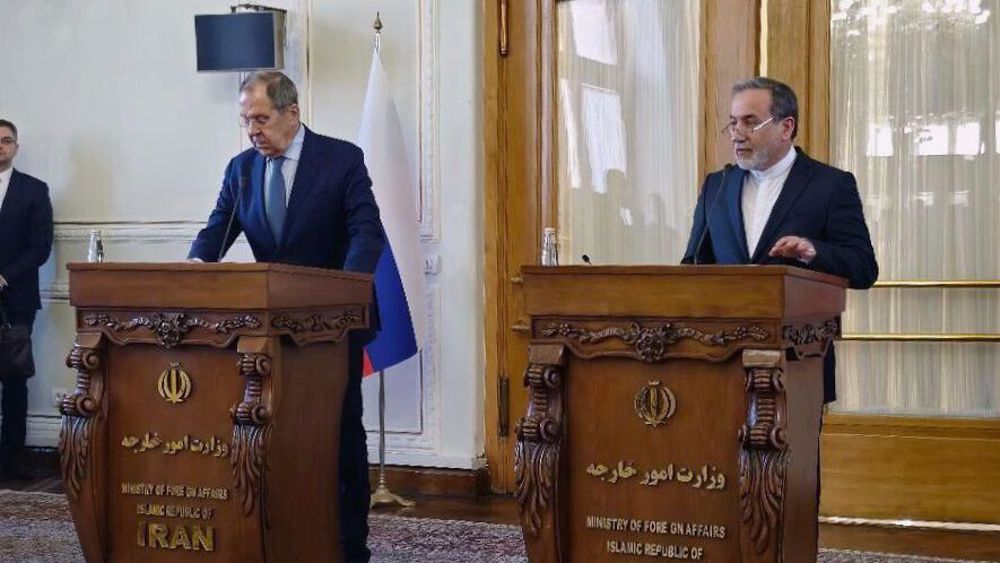
Iran rules out nuclear talks with US amid ‘maximum pressure’ campaign
Iranian flotilla makes port call in India with 'friendship message'
How UK counter-terror police colluded with Zionists to detain me after Beirut trip
Biden, Blinken, Austin referred to ICC over Gaza war crimes
EU will 'do the same' if US implements tariff hikes: France
VIDEO | Press TV's news headlines
British celebrities condemn BBC removal of Gaza documentary
Iran Army acquires tactical vehicles, audio surveillance systems
VIDEO | UK police detain anti-Zionist scholar upon return from Lebanon


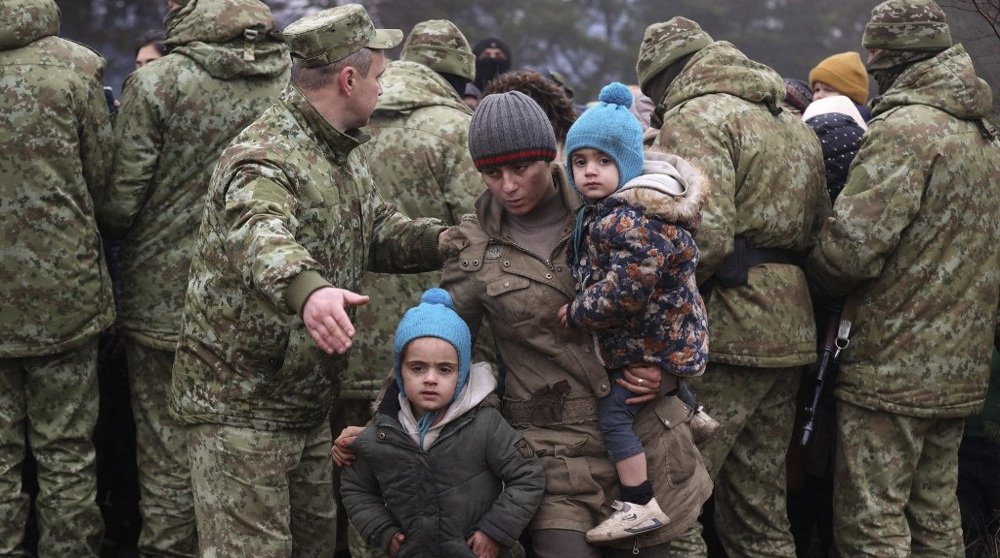
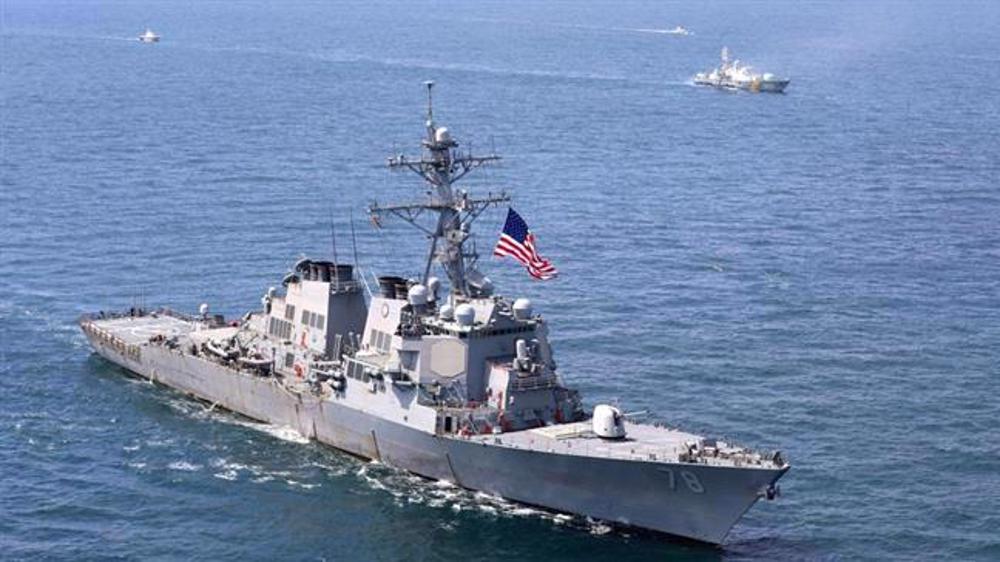
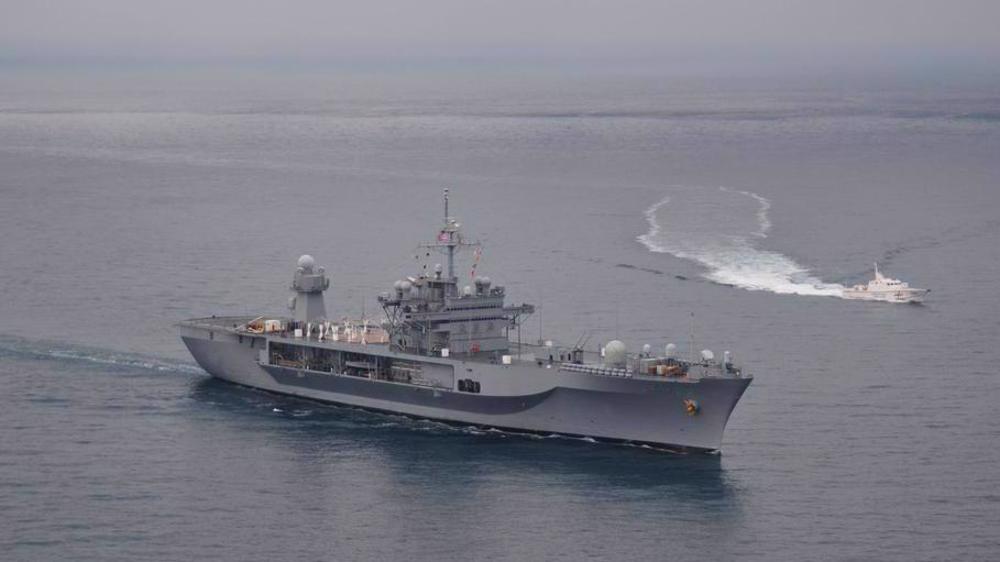




 This makes it easy to access the Press TV website
This makes it easy to access the Press TV website